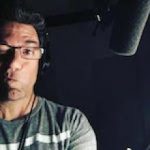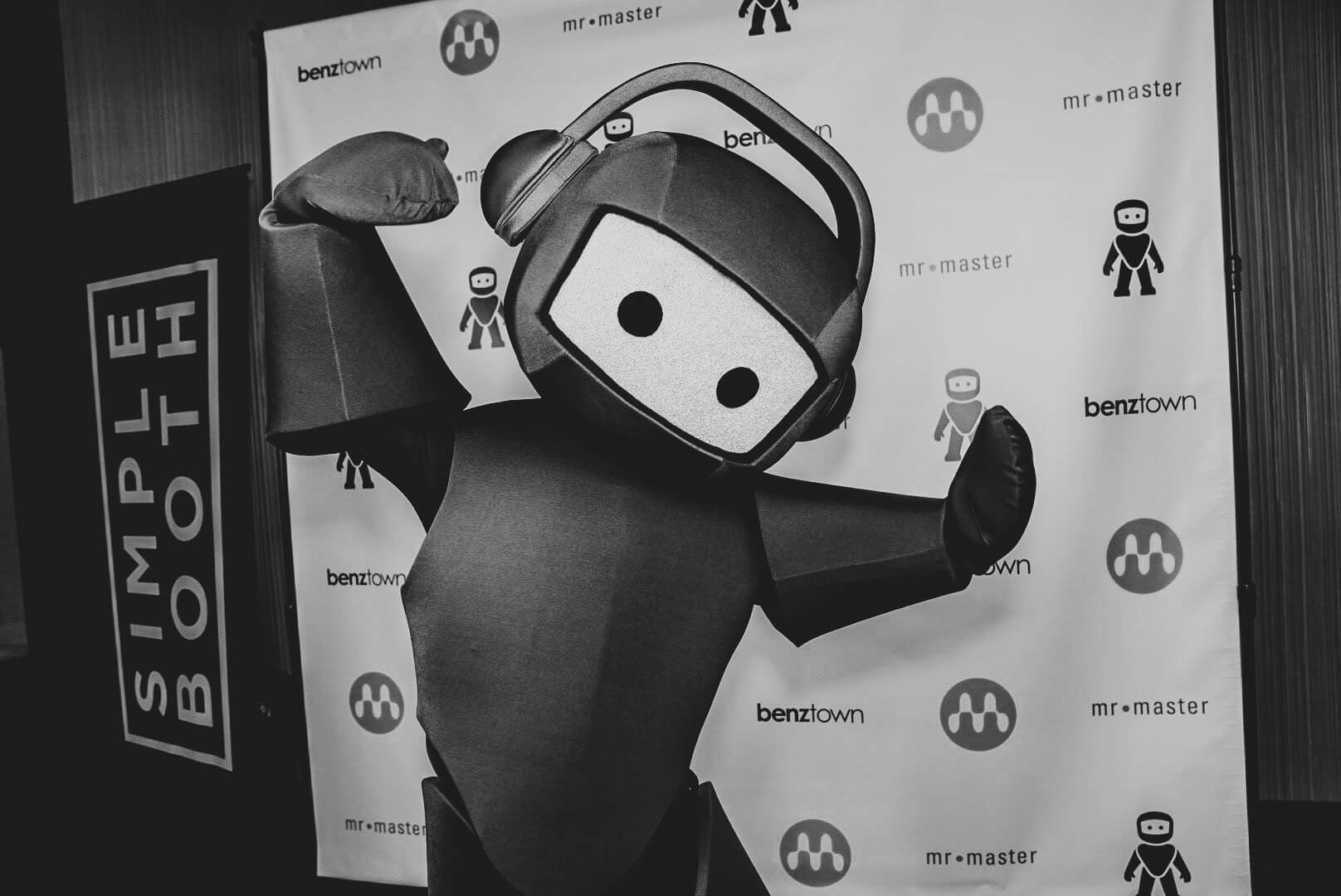Paris….The French Connection is back or who the hell is…
The city of art, of love and the best bread in the world – Paris! Also a massive city in case of Radio Imaging? Easy answer: Yes indeed. Oli and I hung out with Matthieu in Paris this week. He was so kind to show us the most touristy spots on one single day plus gave us an incredible radio station tour in his home town. Thanks for everything, Matthieu, we had an unbelievable day in one of the most beautiful cities in the world! You rock!
Back to French radio: In general, I am really more than impressed. The stations, we visited are all the highest standard in broadcasting technology, their interior design is stunning and the Imaging in France is quiet impressive. The French scene is totally underrepresented through out the mostly English speaking Imaging world. This is easy to prove! Check the Pics, the interview and screencaps with and from Matthieu + the stations I recommend to stream. Enter The French Connection is back!
Here’s a little teaser of what French Imaging has to offer.
[soundcloud width=”100%” height=”81″ params=”” url=”http://api.soundcloud.com/tracks/20963076″]
Great French Imaging:
Here’s my interview with Matthieu:
First thing I should apologize to the English & American people who read this blog, because my English is really bad, and I will probably make a lots of mistakes during this interview.
1) Which production system do you use at station and why ?
I always have running on Pro Tools. Since version 5 I think, and always on a mac ! Actually I have a lot of chances because when I have left my former radio station, they don’t have a producer working with this DAW.
So I have the opportunity to take all my studio with me, at home.
To be short, I’m running a pro tools HD2 station on a power PC G5 with 6go of ram, 2 screens, Pro tools HD8, 2 To of hard drive because is also work with video, so I need to have a lots of space on my hard drives.
I work with a C24 control surface and 2 dynaudio BM6 monitors. My old monitors, two Genelec 1029A are now used for the dj set corner of my studio.
I have also a Pro tools LE 8 with the micro key MBox and a digi002R for the outside studio sessions running on a apple macbook pro laptop. I’m an Apple & Digi addict !
For recording voices, I use a Shure SM7 and a KSM44 with a Focusrite Voicemaster pro channel.
My DJ set is pretty old but enough for what I’m doing with it. Pioneer Cdj500 Mk2, DJM 500 as console, and my new gadget, the M Audio Torq Exponent for mixing with mp3 files.
2) What are your favourite plugins ?
My day to day session include Waves plugins, from the Gold bundle. I really love the renaissance compressor & the Eq. Since a few months, I also use the MV2 to trackslam some voices. I always have a basic Eq7 on my hands to cut somes frequencies & to run some Eq automations.
My favourite reverb is the TrueVerb and I love to use the L family, L1, L2 & L3, but this last a little beat more “complex” than the other, so I touch it carefully.
When I work for young projects as CHR or urban stations, I also use the MasterX3 plug from Tc Electronics, but it just exist in TDM version what’s very bad for me, because I’m always switching between my HD station and my laptop. So I used it less.
In a other life… I’m pro tools teacher in a radio school…. I also use the greens plugins from McDsp. We have the complete bundle to explain to the students what’s a reverb, the differences between a compressor and a limitor etc. They sound really nice, but they’re most used on big music studio I think than in radio production room.
But if you look plugs shippers than the Waves, I think you could look at Izotope. Last year I have tried the family, Nektar for the voices, Alloy et Ozone and they’re great. If I was a starter producer with just few USD, I will probably start with this plugins company. They make a really good price/quality deal.
Last things, there’s a lots a great plug-ins with the stater pack of your Pro Tools. I know one of the top radio station of France who used it for all the production stuff the made. The secret for me with the Digirack plug-ins is to use the same plug-in twice or more on the same track…
3) How do you schedule your work?
I spend a lot’s of time on copywriting, because when I write a text, the promo and the sounds, the voices of my voice-over crew are still in my head. It could take me a lots of time, but when my stuff is writing, half of the project is ready.
Second advice, when you have multitasks to do in the same day, when you’re intern like me in radio station, you should immediately do all the tasks, which are shortly than 2 minutes. If you just record a liner, do it now, produce a little FX, do it now. If you have a promo to do, take your time, check your email before starting, go to the toilets, take a drink, call your girl friend or whatever, and after that, run. Run on your promo for 30 minutes, one or two hours but don’t stop till it’s finished. After that, take a breath, check your mail, record little liners or FX, and come again to your session one hour after to re-heard your mix. Make corrections.
To make a promo I always start by the voices. Put fade in and fade out on all pieces, try to find the music running in my head when I have written the promo, checking my FX.
I also love to take time to anticipate demands. So I spend time, generally on friday afternoon to records a lots of things like film trailer, sound of news, cutting acapella, found some instrumental versions of the songs of my station….
4) What do you love about being the head of production?
I was head of production last year. Actually I’m not, but we have a lot’s of flexibility. What I really like to be at the head of the production? Probably the two weeks of cruising in the Caribbean Sea as guest of big studio’s like Benztown… kidding…
What I really love is to control everything, have time to think about what your crew should do next week, have time to listen your radio, to benchmark, to meet all the people of the radio, the work on special days etc… I also love to manage team, exchange with people, work with technical services to rebuild studios etc… You could do a lots of things when your’re head of production in a radio station. But you also have great responsibilities.
5) What’s the best pro tools or production trick anybody should know?
I probably have two advices for this answer.
This first advice comes probably from my historical studies at the university. I love history, and I think that a good producer is a good archivist. You should be well organized. Record and keep sounds from everything’s happening in your station, in your television, in your day to day life. You should have pretty cool sound bank, but you also should have everything matching with the next sound, a DJ is looking for.
Sport events, political events, local events, earth events etc… Everything is important, everything can be useful, tomorrow, in ten years. Actually I’m working for a station on the commemorations of the 11/9. I have sounds of the former president Bushm which are matching Obama’s speech of the first or the second of May of this year after the Bin Laden death. This is really an important thing to me, be able to putt off a sound of your hat like a magician put off a rabbit. And this is a challenge. In an other hand, when you correctly backup your pro tools sessions, you’re able to exhume the old sessions of last year, and you just have to remix it a little bit for this year. You could save a lots of time to focus on bigger events, especially when you’re alone as producer in a station.
Second advice, before you start as a producer, or in the same time, learn everything you could learn about the other works in your radio station. You should be able to be an on air DJ, a speaker, a journalist, a phone-keeper, a listener, a game caller. With that you have a great vision of what’s the job of everyone, you could anticipate their demands, you’re more able to understand why for a DJ: a voice on a bed is not the same things that a voice and a bed. As phone keeper you could speak directly to the public of the station. I could better know who are your listeners, how they speak, what words they’re using etc…
6) How do you get inspired and what do you use as source of creativity?
I probably try to live the life my listeners are living. It’s really difficult especially when you work on nationwide radio station as me in Paris, because in Paris you couldn’t life the life as your listeners lives in smaller town like Bordeaux, Lyon, Marseille, or in the smallest “village”… But I tried to live like other men, have a family, friends from other world of radio, walking in all the streets and not just my home corner, or the corner of my radio, look my few euros at the end of the month… for this last thing my boss help me very well 😉
I also look around me, heard a lots of music, a lots of radio stations all over the world, speak with radio guys, check my RSS flux, twitter, linkedin share links, update the youtube main page to see what’s happening in the world of videos. Look a lot’s of film, from American film to iranien or japanese. I also check Google news Actuality page twice an hour. I watch the TV, because you should be able to speak just few words about what your listeners have looking last night on is TV.
After that, I read books, about radio, about management, about relationship, about psychology, history, technical stuff or e-learning stuff…. 24h a day is not enough to do all the things I would do & learn.
7) Who were your radio production idols, who influenced you as a producer?
I have started to listen radio at 12. At this time, it was really difficult to hear what’s happening in radio all over the world. So I was really focused on things happened on the French Fm. So for my first class I didn’t have icons.
The first producers where French producers, like PO at Fun Radio and Skyrock after Sam Zniber @ Nrj, Jean-Michel Meschin @ Nrj & Fun Radio, Dominique Torti who’s famous in France for his beatmix called Tortillades on Europe2, former station of Virgin Radio. But I never try to copy them, I always try to make things that sound good for me, for my market, for my radio.
Now, everything is easier. Of course I love the voice and the works of guy’s like Dave Foxx, who was for me the first foreign producer I have heard. But if we speak about icon, Jeff Thomas is probably one of them because, the Killer Hertz sound was running on all the station all over the world.
I have discovered by your blog the work of David Konsky in Australia and his sound is enormous.
Oli & you have also a great sound at Benztown. I love your last library Fame FX with a ton of sounds for an affordable price. I also follow works of Mike Young, Eric Chase, the Frost beat, the guys of Grooveaddicts…
I Always hear the reelworld highlight of the “production vault”.
Actually I love the sound of two producers running out the mainstream of production services, I have a great respect for a crew of Netherlands called The Rocketeers, I love their sound “coming from the stars”…
8) What would be your 3 key advices for me as a youngster?
– Never stop learning about everything, including our world.
– When you listen your promo make the double check: Check if everything is at the right place, and what’s for, and you should be able to adjust all the FX, VO, music you have used. Mute the voice track and listen, then mute the music tracks and un-mute the voice over tracks. Everything is OK?
– Never show your radio card when you’re trying to pick up a girl.
See some settings and studio pics from Matthieu:
And here’s some stuff from our little sightseeing tour:




;)